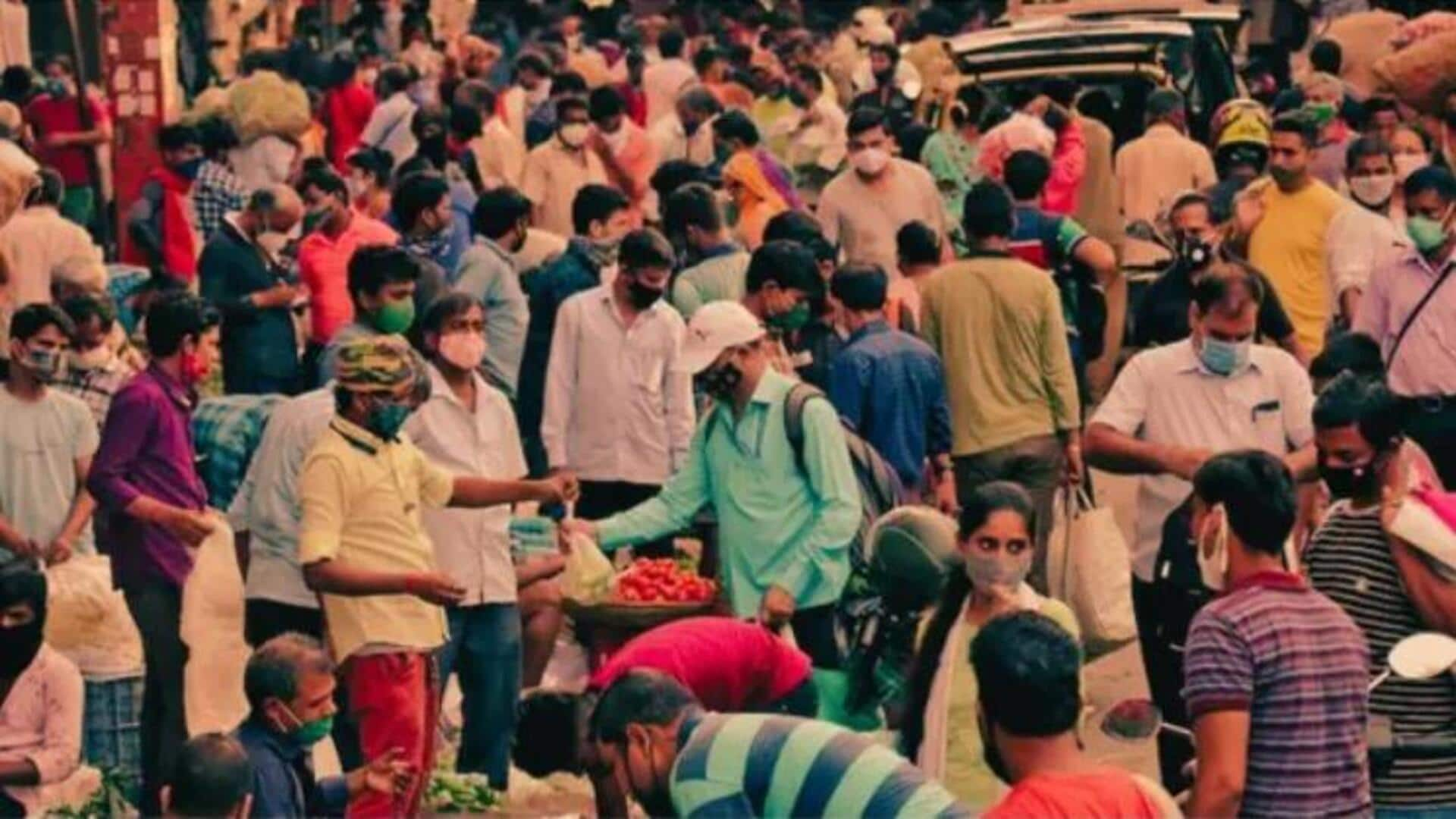
Share of majority population declined in India, EAC-PM report shows
What's the story
India witnessed a reduction in the share of the majority religious population by 7.81% from 1950 to 2015—a May 2024 report "Share of Religious Minorities A Cross-Country Analysis" published by the Economic Advisory Council to the Prime Minister said.
The report noted that India's majority population decline ranks second globally, following Myanmar's 10% decrease, out of 167 analyzed countries.
During the same period, India witnessed a 43.15% increase in the Muslim population—rising from 9.84% (1950) to 14.09% (2015), it added.
EAC-PM report
Minorities protected in India, says report
"Contrary to the noise in several quarters...data shows that minorities are not just protected but...thriving in India...This is...remarkable given the wider context within...South Asian neighborhoods where the share of the majority religious denomination has increased and minority populations have shrunk...[in]Bangladesh, Pakistan, Sri Lanka, Bhutan and Afghanistan," it said.
The working paper uses demographic data from the Religious Characteristics of States Dataset Project-Demographics published by the Association of Religion Data Archives (ARDA) in 2019.
Minority trendsQ2
Minority groups witness varied population changes
The composite share of minorities has notably increased, with India witnessing rises in the Muslim, Christian, Buddhist, and Sikh populations, the report said.
The share of the Christian population rose from 2.24% to 2.36%—an increase of 5.38% between 1950 and 2015. The share of the Sikh population increased from 1.24% in 1950 to 1.85% in 2015—a 6.58% rise in their share.
However, not all minority groups experienced growth; the Jain and Parsi populations saw a decline during this time.
Report says
'Conducive environment to foster diversity in society'
"India's performance suggests that there is a conducive environment to foster diversity in the society. It is not possible to promote better life outcomes for the disadvantaged sections of society without providing a nurturing environment and societal support through a bottom-up approach," the paper said.
The paper is authored by EAC-PM member Shamika Ravi, Apurv Kumar Mishra, Consultant, EAC-PM, and Abraham Jose, Professional, EAC-PM.